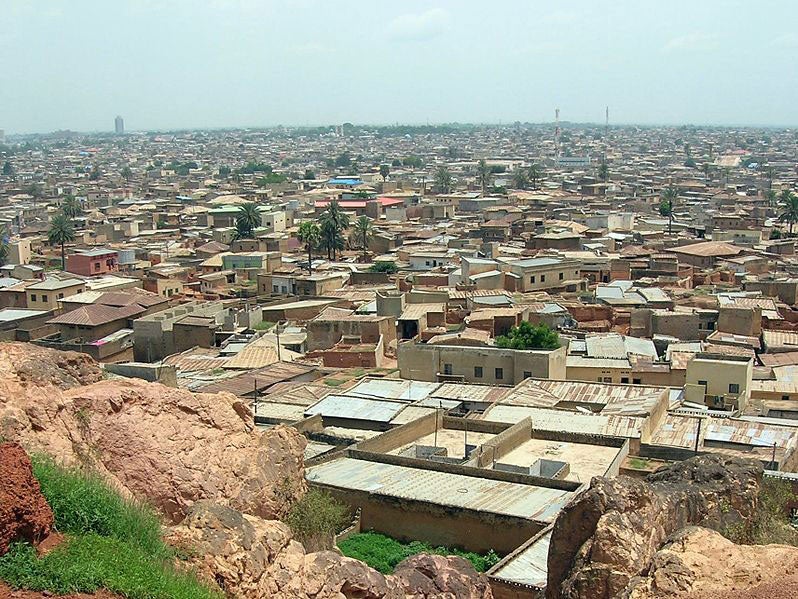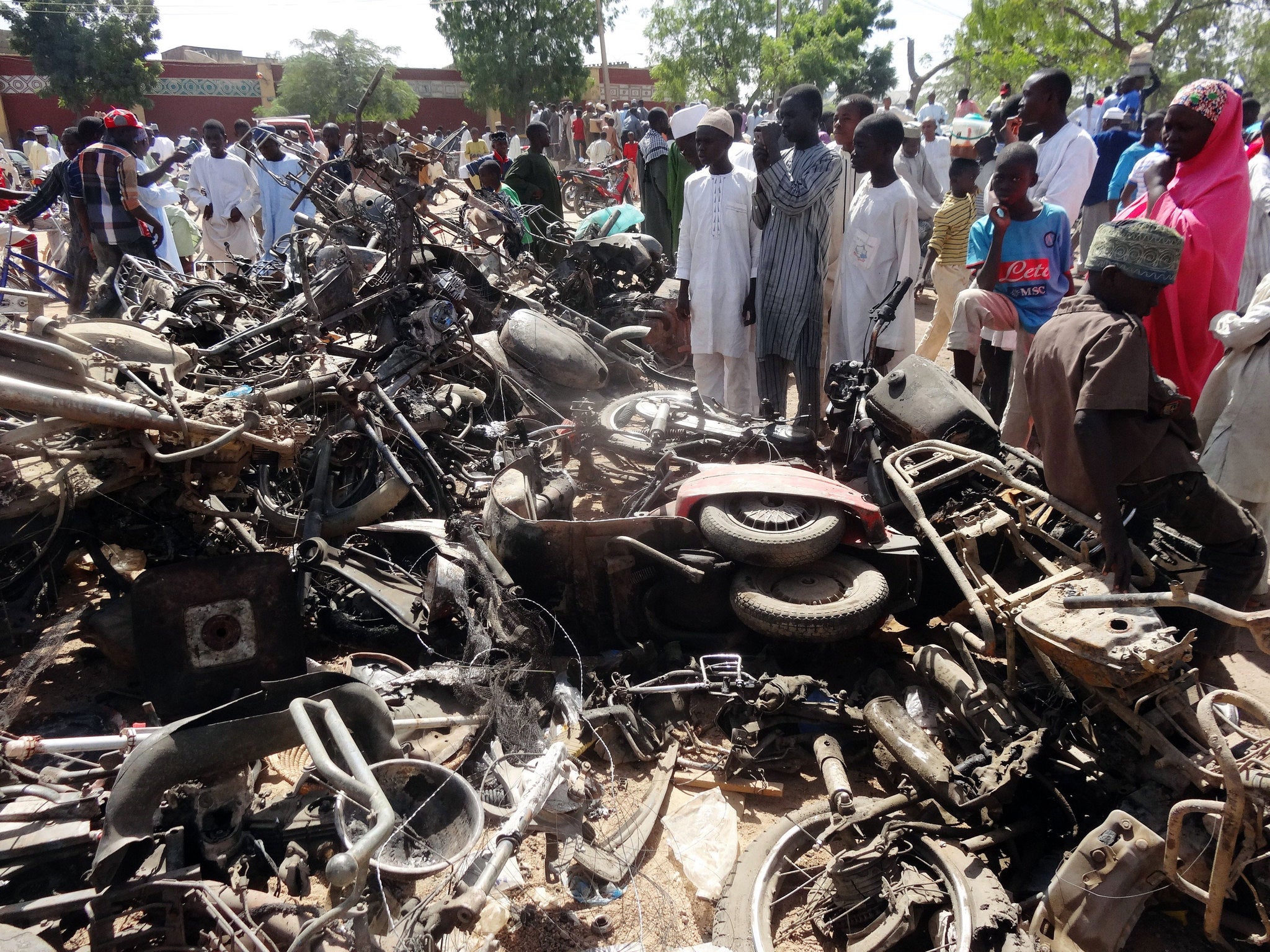Nigeria suicide bomb attack: Four killed and seven injured at Kantin Kwari textile market
The incident comes weeks after an attack on the Grand Mosque in Kano, where hundreds of worshippers had gathered to hear a sermon at midday

Your support helps us to tell the story
From reproductive rights to climate change to Big Tech, The Independent is on the ground when the story is developing. Whether it's investigating the financials of Elon Musk's pro-Trump PAC or producing our latest documentary, 'The A Word', which shines a light on the American women fighting for reproductive rights, we know how important it is to parse out the facts from the messaging.
At such a critical moment in US history, we need reporters on the ground. Your donation allows us to keep sending journalists to speak to both sides of the story.
The Independent is trusted by Americans across the entire political spectrum. And unlike many other quality news outlets, we choose not to lock Americans out of our reporting and analysis with paywalls. We believe quality journalism should be available to everyone, paid for by those who can afford it.
Your support makes all the difference.Four people have been killed in a suicide bomb attack at the busy Kantin Kwari textile market in Nigeria’s second city of Kano, police said on Wednesday.
At least seven people, including some traders, were injured in the blast carried out by two women in the northern city, police commissioner Adenerele Shinaba said on Wednesday.
The chairman of the Kanti Kwari market, Alhaji Liti Kulkul, confirmed to Reuters that there had been a blast, but was unable to offer further details.
Those behind the attack have yet to be identified, but officials said it bore the hallmarks of the extremist Islamic group Boko Haram, BBC News reported.
The biggest textile market in Kano, people from neighbouring states and other parts of Nigeria flock to Kanti Kwari to trade.
The incident comes after a highly organised attack was carried out at Kano’s central Grand Mosque at the end of last month, killing over 100 people and injuring hundreds more.
The attackers, believed to be members of Boko Haram, set off three bombs and opened fire as hundreds of Muslims gathered to hear a sermon.

One bomb exploded inside the mosque, one of the country’s largest, and two others detonated at the gates of the adjoining palace, home to the Emir of Kano, Sanusi Lamido Sanusi, who condemned Boko Haram in a recent sermon.
The extremist Sunni Islamist group has been leading an armed rebellion in northern Nigeria since 2009, but its activities attracted international attention earlier this year when its members kidnapped over 250 school girls from the town of Chibok in Borno State.
While some of the girls escaped, the situation for the remaining captives looks bleak, as a man claiming to be Abubakar Shekau, Boko Haram's leader who reportedly died a year ago, claimed the girls had been "married off".
More to follow
Join our commenting forum
Join thought-provoking conversations, follow other Independent readers and see their replies
Comments